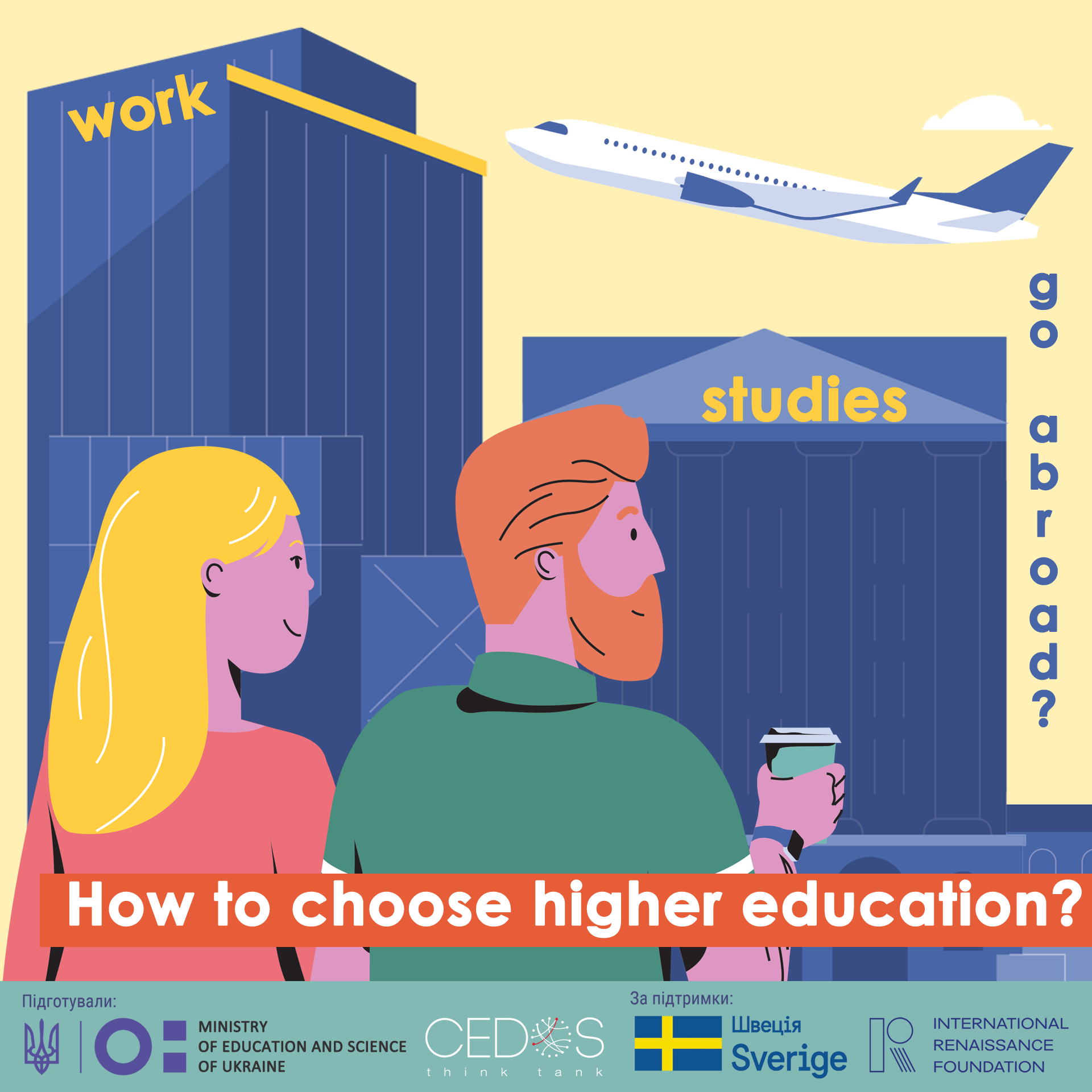Thanks to the university applicants and their parents, the funding to higher education institutions gets distributed in Ukraine these days. State funding for an institution depends on the number of applicants who have won their way up to study for public money in a particular institution and have chosen it. Tuition fees depend on the choice of the applicants and their parents. The amount of funding for an institution depends on how many people have chosen it.

Under such circumstances, it is important that applicants, as well as their parents, know how to choose a suitable education program to improve the quality of education in Ukraine.
Together with the Ministry of Education and Science of Ukraine, we have prepared a guidance for the applicants on how to choose higher education. The guidance is based on our research and consists of three sections: professional choice, choice of higher education institution and choice of education abroad.
During the 2019 entrance campaign, the guidance was visited by 98,000 new users. They viewed the guidance page for an average of 4 minutes 40 seconds. Dr. Komarovsky and Andriy Kulikov got acquainted with the page. They recommended it to their fans. “Mirror of the Week”, the Government Portal, the Day newspaper, UNIAN, Obozrevatel and other mass and niche media wrote about the guidance. 1 + 1, 24 channel, 5 channel and other TV channels made a report about it as well.
We hope to continue our work on the guidance and present an improved version of it next year. We are grateful for the cooperation of the Ministry of Education and Science and plan to proceed with our work.
You can use the guidance here (in Ukrainian): https://cedos.org.ua/vybir
The development and design of the guidance were carried out within the framework of the Think Tank Development Initiative for Ukraine, which is implemented by the International Renaissance Foundation in partnership with the Open Society Initiative for Europe (OSIFE) and financially supported by the Swedish Embassy in Ukraine.
Support Cedos
During the war in Ukraine, we collect and analyse data on its impact on Ukrainian society, especially housing, education, social protection, and migration








